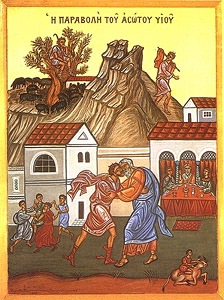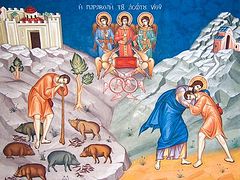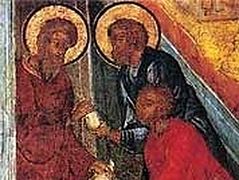Source: antiochian.org

Repentance is often simply identified as a cool and "objective" enumeration of sins and transgressions, as the act of "pleading guilty" to a legal indictment. Confession and absolution are seen as being of a juridical nature. But something very essential is overlooked-- without which neither confession nor absolution have any real meaning or power. This "something" is precisely the feeling of alienation from God, from the joy of communion with Him, from the real life as created and given by God. It is easy indeed to confess that I have not fasted on prescribed days, or missed my prayers, or become angry. It is quite a different thing, however, to realize suddenly that I have defiled and lost my spiritual beauty, that I am far away from my real home, my real life, and that something precious and pure and beautiful has been hopelessly broken in the very texture of my existence. Yet this, and only this, is repentance, and therefore it is also a deep desire to return, to go back, to recover that lost home....
One liturgical peculiarity of this "Sunday of the Prodigal Son" must be especially mentioned here. At Sunday Matins, following the solemn and joyful Psalms of the Polyeleion, we sing the sad and nostalgic Psalm 137:
By the rivers of Babylon, there we sat down, and we wept when we remembered Zion... How shall we sing the Lord's song in a strange land? If I forget thee, O Jerusalem, let my right hand forget her cunning. If I do not remember thee, let my tongue cleave to the roof of my mouth; if I prefer not Jerusalem above my chief joy...
It is the Psalm of exile. It was sung by the Jews in their Babylonian captivity as they thought of their holy city of Jerusalem. It has become forever the song of man as he realizes his exile form God, and realizing it, becomes man again: the one who can never be fully satisfied by anything in this fallen world, for by nature and vocation he is a pilgrim of the Absolute. This Psalm will be sung twice more: on the last two Sundays before Lent. It reveals Lent itself as pilgrimage and repentance-- as return.



